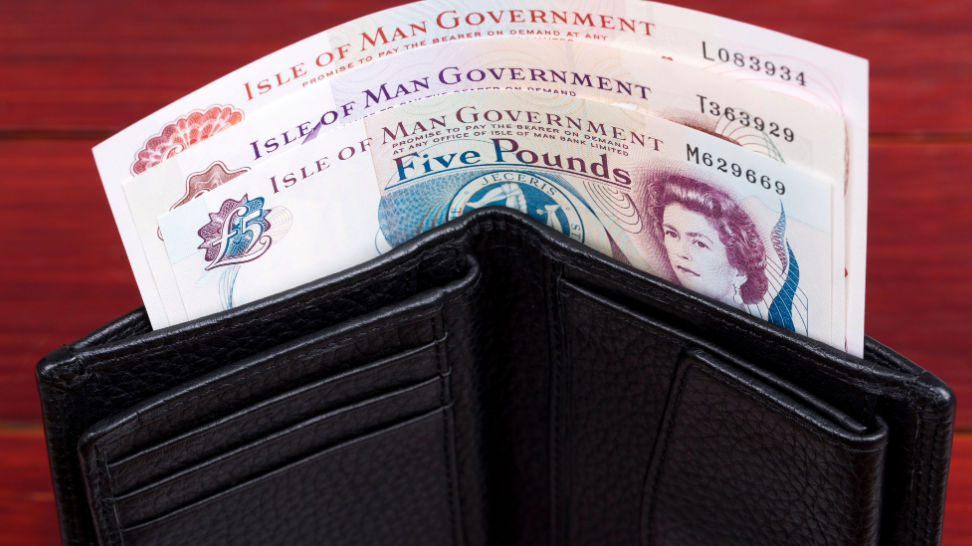The Isle of Man is a self-governing island in the Irish Sea that offers exciting opportunities for individuals looking to diversify their investment portfolio or expand their asset protection strategy.
The region is one of the most politically stable locations for offshore trusts, and the island has developed a reputation for cost-effectiveness and robust legislation. This focus on offshore investment has made the Isle of Man an excellent base of operations for many high-quality investment professional advisers and trust-related service providers.
However, as with any other investment opportunity, the Isle of Man trust has benefits and drawbacks. Whether or not it’s a good option will depend largely on your current portfolio and future goals.
What Is an Isle of Man Trust?
A trust is a mechanism whereby you can separate the legal ownership of an asset from the right to use and benefit from that asset. These assets can range from bank accounts, cryptocurrency, family assets, and investment portfolios to your own property and company shares.
The formation of trust accounts involves the settlor transferring ownership of an asset or property to a selected trustee, who is then responsible for holding and managing that asset for a particular individual — the beneficiary. The settlor outlines the terms of the trust in a legal document known as the trust deeds, and the trustee is responsible for adhering to these terms and any relevant laws and regulations.
The Isle of Man trust operates similarly to many other offshore trusts. The island’s trust law has its roots in English law but has developed its own local laws to encourage offshore investment and trust establishment. Combined with stability and a healthy financial sector, Isle of Man trusts can fulfill numerous functions, including:
- Family provision and wealth preservation
- Protecting assets from personal liability
- Tax mitigation for certain individuals
- Business succession planning
- Charity or philanthropic funding
Trust Types You Can Create in The Isle of Man

Your goals will largely determine the type of trust you establish in The Isle of Man. While the differences between various options may seem subtle, they can greatly impact the usefulness and quality of your investment.
Discretionary Trust
One of the most popular trust types in the world, the discretionary trust gives the trustee relatively free reign to apply the income and capital of trust assets for maximum beneficiary advantage. Trustees may even decide which beneficiaries obtain benefits from the trust and how much they receive. Beneficiaries have no right to expect any benefit and should not expect equal treatment across the class.
The settlor may express their preferences and guidance on how to disburse trust assets in a letter of wishes, but these preferences aren’t binding.
The primary purpose of a discretionary trust is to protect the beneficiary — either from themselves or third parties. It’s an excellent asset protection mechanism that may avoid inheritance tax while ensuring that disabled or irresponsible beneficiaries receive the benefits of a more experienced and level-headed trustee.
Charitable Trust
Charitable trusts use trust assets to promote charitable or philanthropic purposes. To qualify as an exclusively charitable trust, the trust’s objectives and activities must fall under a specific charitable purpose. The Isle of Man defines charitable purposes as:
- Poverty relief
- Education advancement
- Religious advancement
- Activities beneficial to a community
Charitable trusts must register with the Isle of Man Charities Registry per the Charities Registrations and Regulation Act of 2019.
Life Interest Trust
A life interest trust deed will give beneficiaries the right to a fixed share of the income from a trust property for a defined period — usually the beneficiary’s lifetime. These trusts have certain rules regarding the future of the trust’s assets after the life tenant’s death, though trustees still have the final say in the capital distribution.
Purpose Trust
Purpose trusts have a fixed purpose specified in the trust deed. These purposes can include anything as long as the purpose is reasonable, possible, and legal. These trusts typically have two trustees, one of whom is typically a “designated person” or a regulated professional operating from the Isle of Man. The designated person is responsible for record-keeping and other administrative tasks associated with the trust within the island.
Common uses of purpose trusts include:
- Holding shares in a private trust company that acts as a trustee for the trust
- Funding social benefit projects that fall outside the definition of charitable works
- Holding voting shares in a family company
- Holding shares during commercial transactions and refinancing arrangements
- Establishing orphan ownership vehicles to finance transactions and securitizations
Employee Benefit and Pension Trusts
Corporate entities may set up trusts to fund employee benefit schemes or to house employee pension funds.
Setting Up an Isle of Man Trust

Setting up a trust on the Isle of Man is similar to processes in other countries. Firstly, the settlor must decide on the type of trust they want that will best meet their goals — asset protection, avoiding estate taxes, etc. — which affects the scope and purpose of the trust.
The settlor must then nominate a trustee who will manage the fund. This trustee has a fiduciary duty to the settlor and trust beneficiaries to execute the trust following the deed terms. The Isle of Man also requires all professional trustees to hold a Class 5 license to provide trustee and other trust-related services according to the Financial Services Act of 2008 but also allows for the formation of a private trust company (PTC) that acts exclusively as a trustee.
Once the settlor has decided on a trustee, they must determine the beneficiaries of the trust — those who will ultimately benefit from the trust assets and properties. Some trusts require a beneficiary class, while others allow individual and group beneficiaries.
The trust deed is the founding document that outlines the nature and duration of the trust, in addition to trustee responsibilities and duties. Trustees have a legal obligation to comply with this document, which determines the nature of their duty. Some trusts, like discretionary trusts, give trustees almost complete autonomy in managing the trust, while others have a significantly narrower scope.
Benefits of an Isle of Man Trust
The benefits of setting up an Isle of Man trust include:
- No capital gains, inheritance, gift, or estate taxes: The lack of these taxes makes most Isle of Man trusts excellent for estate planning and wealth protection. Though your home country may still impose these taxes.
- No income tax for non-residents: The Isle of Man does not charge income tax for distributed or undistributed income for non-resident beneficiaries, though beneficiaries must report this income to their local tax authorities.
- Privacy: Isle of Man trusts do not release trust owner information on public records.
- Smooth setup process: A less bureaucratic legal structure and a skilled workforce that knows how to conduct trust services on the island allow for rapid trust establishment, often between one to three working days.
- No government fees: Unlike many other countries, the Isle of Man does not charge government registration or renewal fees on trusts.
Minimum Capital Requirements

The Isle of Man does not require trusts to have an authorized capital requirement.
Isle of Man Trust Taxation
An Isle of Man trust is exempt from certain income, estate, inheritance, capital gains, and gift tax. However, the island considers trustees that are Isle of Man residents as income tax payers and they must pay 20% income tax on any undistributed income. Non-residents do not need to pay this tax.
Similarly, non-resident beneficiaries do not need to pay taxes to the Isle of Man on any income from the trust, though they may need to do so in their country of residence. Any trust income from offshore financing transactions or bank interest is also exempt from taxation as long as the beneficiary resides outside the island’s jurisdiction.
However, beneficiaries that are Isle of Man residents will have to declare any income associated with the trust on their annual tax returns.
As with any other asset protection or estate management strategy tool, it’s important to seek legal advice to determine whether a trust will meet your financial goals.
Costs Associated with Setting Up and Maintaining an Isle of Man Trust
The Isle of Man is a cost-affordable option when setting up a trust. Unlike other countries, the island does not have any government registration of licensing fees for PTCs and trustees, as long as they do not provide public trust services and work with licensed professionals.
However, as with all other trusts, Isle of Man trusts incur running and maintenance costs.
Do You Need a Trustee When Establishing an Isle of Man Trust?

Trustees are a vital part of any trust, and it’s impossible to create a trust without one. The Isle of Man used to require a minimum of two trustees per trust, but the Trusts Act of 1995 reduced this requirement to one.
Trustees have a fiduciary duty towards beneficiaries to carry out their functions relating to the trust. They must also comply with their overriding duty to act honestly, in good faith, and in the best interests of the beneficiaries if these conflict with the terms in the deed.
A duly licensed trustee must perform several general duties that include:
- Understanding the terms of the trust and obeying them unless otherwise directed by the court.
- Protecting the trust property and keeping it separate from their personal property or that of other trusts.
- Exercising reasonable skill and having the expected special knowledge and experience of their professional position as a professional trustee.
- Acting impartially between the varying interests of beneficiaries while working in their best interests.
- Exercising their powers in good faith and only for outlined trust purposes.
- Reporting to the beneficiaries, which may include providing accounting information regarding the current status of the fund.
- Regularly reviewing trust investments and considering certain investment criteria when formulating their investment policy. Trustees must also seek professional advice when necessary and provide the investment policy to investment managers and other professional advisors.
Trustees must adhere to governing laws and are accountable for any losses to the trust that arise from a breach of their duties.
Working With a Private Trust Company
While working with a registered institutional trustee has advantages, many investors opt for private trust company structures instead. A private trust company, or PTC, is established solely to act as a trustee for a particular trust or set of trusts.
According to the Financial Services Act, PTCs are exempt from normal licensing requirements regulating offshore company formation, making them one of the most cost-effective finance centers in the world. This exemption places certain restrictions on PTCs — they may not provide public trust business, and only an Isle of Man-registered corporate services provider may administer the trust.
Typically, an Isle of Man purpose trust will hold the PTC shares to incorporate, promote, and maintain the PTC. Settlors may outline board appointment processes and mechanisms in their trust terms, or this may be left to the discretion of the PTC.
The benefits of using a PTC include:
- Avoiding trustee changes: Having a PTC as a trustee means it’s easier for the trustee to change corporate services providers — instead of altering the entire trust, the PTC may terminate the existing management agreement and enter into a new one with a different service provider.
- Family control: Wealthy families often use trusts to protect business assets or establish wealth. A PTC allows the family to exert a greater degree of control on the trust by sitting on the board of directors along with trusted advisors who are familiar with the family’s business and financial situation.
- Higher risk tolerance: Professional trustees are well aware of their liability regarding trustee beneficiaries and third parties and will be reluctant to consider risky investments. As PTCs may have an established board of directors, they may be more willing to fund riskier ventures while remaining within the trust structure.
- Flexibility: PTCs are focused on managing a relatively small number of trusts, so they can react more quickly when dealing with assets and investment opportunities.
Isle of Man Trust Amendments

While the Isle of Man remains under the British Crown, it operates independently under the governance of the Tynwald, the island’s democratic parliament.
Trust formation and administration are subject to statutory provisions contained in several Acts and amendments, including the following:
- Settled Land Act of 1892
- Trustee Act of 1961
- Variation of Trust Act of 1961
- Perpetuities and Accumulations Act of 1968
- Recognition of Trusts Act of 1988
- Trusts Act of 1995
- Purpose Trusts Act of 1996
- Trustee Act of 2001
These laws have undergone several amendments over the years, the most notable being the Isle of Man Trust Amendment Act of 2015. This Act introduced several important changes that included:
- Abolition of the two-trustees rule
- Removal of the 150-year trust expiration
The 1995 Trusts Act, sometimes known as the “firewall act,” aimed to protect Isle of Man trusts from foreign interference when determining the trust’s validity or the capacity of the persons connected with it. The Act excluded the recognition of foreign court judgments if they were inconsistent with the Trusts Act unless the High Court decreed otherwise.
Isle of Man Trust Limitations
The Isle of Man has very few limitations in its trust law. Unlike several other finance centers, the island does not require an authorized capital requirement to establish a trust.
Similarly, an amendment to the Trusts Act removed the age limit of a trust, which formerly forced the trust to vest to a beneficiary after a predetermined period. The amendment allows trusts to exist in perpetuity, making Isle of Man trusts an appealing asset protection vehicle, especially when combined with firewall legislation that excludes foreign court judgments regarding trusts.
Isle of Man Trust Perpetuity Period

Before 2015, any trust established on the Isle of Man had a legally-mandated expiration date, up to 150 years from creation to the expiration date. The Isle of Man Trust Amendment Act of 2015 struck down this requirement, allowing trusts to exist perpetually.
This amendment means that while settlors can still set an expiration date on trust, it is no longer a legal necessity. This change is notable because it allows multiple generations of trust beneficiaries to take advantage of the trust. Before the amendment, the trust termination forced an asset turnover to the trust beneficiary. While this turnover may sometimes be advantageous, it prevents the trust from acting as a generational wealth protection vehicle or as a reserve for long-term charitable or philanthropic goals.
With an extremely politically stable environment, trust-friendly legislation, experienced and well-educated finance sector, and a perpetuity period, Isle of Man trusts have become one of the most appealing international asset protection trusts in the world.
Discover More About Isle of Man Asset Trusts
Whether you’re looking for a new asset protection vehicle or want to preserve your estate and legacy, our team at Blake Harris Law is here to help. Contact us to learn about the latest developments in Isle of Man trusts and whether they are the right fit for you.


